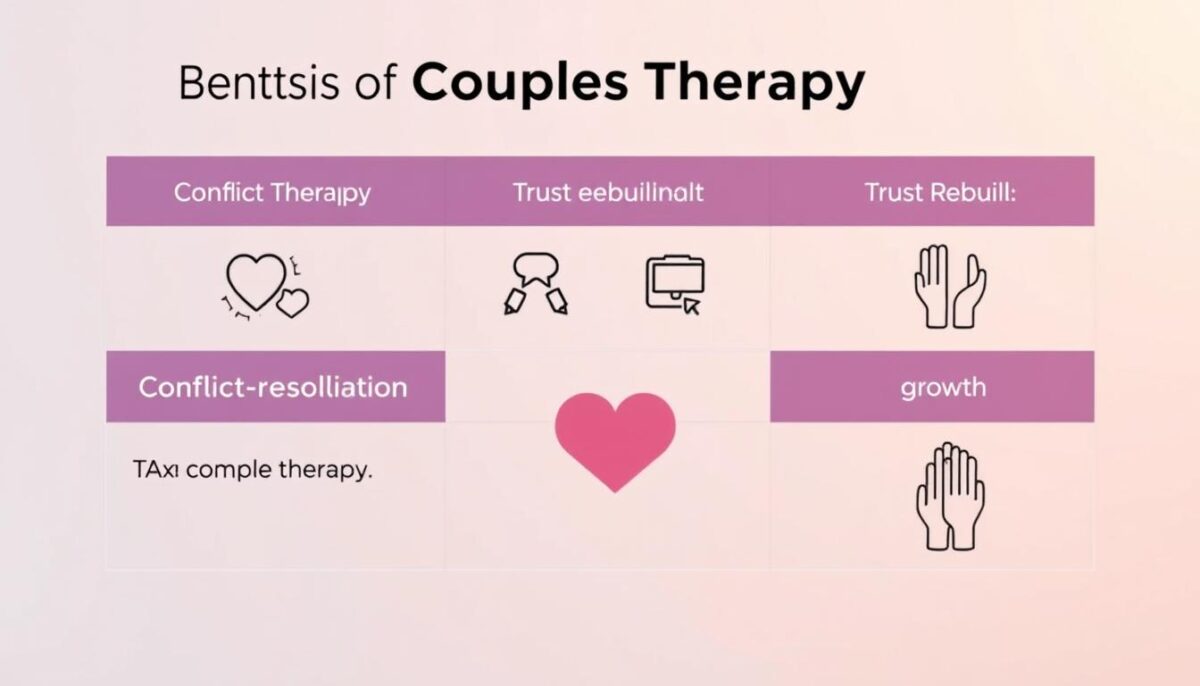Entering this phase of my life made the engagement process complex. The excitement of sharing a future with my partner was soon overshadowed by doubts and uncertainty. It wasn’t just about wedding plans; it was a critical juncture where the possibility of divorce became a troubling thought.
This engagement dilemma prompted me to delve deeply into my emotional turmoil surrounding our relationship. I found myself considering separation before marriage, struggling with feelings of being unsure about our future together.
In exploring these challenges responsibly, I discovered that many relationships face similar hurdles. Understanding how to navigate these waters requires reflection and honest communication with my partner. Throughout this article, I will share insights derived from my own experiences, coupled with relevant research on handling pre-wedding uncertainties and relationship commitment issues.
Navigating this terrain isn’t easy, but it’s essential for fostering a foundation built on trust and mutual understanding.
Understanding the complexities aheadwill be crucial in my journey.
Understanding My Engagement Journey
The early days of my engagement were filled with excitement and hope. I dreamed of a future together, with the wedding day as a highlight. But as the date got closer, doubts started to creep in.
The Early Stages of Engagement
In the beginning, everything seemed perfect. I was infatuated, and wedding plans filled my mind. I pictured a beautiful ceremony with friends and family.
Many couples feel the same way, enjoying the planning and excitement of uniting. But as the anticipation grew, my feelings began to change. I started to question our wedding plans and decisions.
Facing Unexpected Doubts
As planning progressed, doubts began to surface. I wondered if I was truly ready for such a big commitment. I realized I wasn’t alone in feeling this way.
These moments of uncertainty are normal. They challenge the initial excitement. It’s crucial to talk about these doubts with your partner to build trust.
| Stage of Engagement | Common Feelings | Importance of Addressing Doubts |
|---|---|---|
| Early Excitement | Hopeful, Joyful | Sets a positive tone for communication |
| Mid Planning | Excitement with Doubts | Allows for deeper discussions |
| Pre-Wedding | Conflicted, Questioning | Enables addressing insecurity |
Understanding and navigating these stages is key to a strong relationship. It prepares you for whatever the future holds.
Reasons Behind My Mixed Feelings
Exploring my feelings about engagement showed a mix of hopes and harsh realities. At first, I thought the engagement would be a happy time filled with joy and support. But, the truth was far from it, leading to pre-wedding uncertainty and mixed emotions.
Personal Expectations vs. Reality
My views on engagement were often based on what society expects, not my true feelings. The gap between what I thought and what was real caused big relationship commitment issues. A study found that most couples therapists find it hard to help when one partner wants to stay and the other wants to leave.
This situation can lead to stress and make it hard to talk about the future.
The Pressure of Commitments
The pressure to commit made me doubt my feelings. Friends and family gave advice based on their own stories, not ours. Their words can sway our decisions, but it’s key to remember that standing up for the marriage might make the other partner think twice.
Looking into Discernment Therapy has helped some couples deal with deep uncertainty. Finding a balance between good and bad experiences is crucial in handling these mixed feelings.
| Aspect | Positive Memories | Negative Memories |
|---|---|---|
| Engagement Experience | Dancing at a wedding | Feeling unappreciated |
| Communication | Sharing dreams and plans | Conflict and arguments |
| Support | Celebrating milestones | Discovering betrayal |
Communication Challenges in Engagement
Good communication is key to a strong relationship. My journey showed that problems in talking can cause misunderstandings and make us feel apart. It was hard to share my worries because I was scared of how my partner would react. But, talking openly was crucial to work through our feelings and doubts.
Expressing My Concerns
Talking about personal feelings can be tough. In our engagement, it was important to share my worries instead of keeping them inside. Not talking about issues led to more problems, making it harder to communicate. By facing my own barriers, we had deeper and more meaningful talks.
Listening to My Partner’s Perspective
Listening carefully to my partner helped us understand and respect each other more. I learned that if one of us is unhappy, the other might be too. This made me realize how important it is to listen with kindness.
Good communication means recognizing and talking about recurring problems openly. Being fully present in our talks helped us share our true thoughts and feelings. This made our relationship stronger.
| Communication Aspect | Impact on Relationship |
|---|---|
| Expressing Concerns | Reduces misunderstandings, fosters trust |
| Active Listening | Enhances mutual understanding, creates emotional closeness |
| Acknowledging Flaws | Encourages personal growth, leads to constructive conversations |
| Vulnerability | Builds deeper emotional intimacy, supports honest dialogue |
| Addressing Issues | Prevents escalation of conflicts, promotes clarity |
Understanding the value of listening to my partner helped ease my fears. It also helped us build a stronger bond. Making our communication better became a top priority. Good talking is essential for growing closer during our engagement.
Analyzing My Relationship Dynamics
Exploring my relationship dynamics showed complex patterns of conflict. These patterns were key to solving issues and strengthening our bond. Our early talks often set the stage for our interactions, becoming predictable quickly.
The Four Horsemen of the Apocalypse—criticism, contempt, defensiveness, and stonewalling—were often present. They created a cycle of conflict.
Identifying Patterns of Conflict
During fights, intense emotions could make my heart race over 100 beats per minute. Spotting this pattern was crucial. It showed how strong feelings could block real communication.
When we didn’t make up after fights, it was a sign of unhappiness. It also hinted at future problems. Looking back at our early times together helped me understand our relationship better.
Trust and Vulnerability Issues
Trust issues made it hard to be open and honest. Building trust helped us connect deeper. Reflecting on past relationships made me compare my current relationship, adding complexity.
It was clear we needed to work on these issues. Learning to manage overthinking and balance in our relationship was key. Expressing thanks, sharing moments, and considering therapy were important steps for growth.
| Patterns of Conflict | Impact on Relationship |
|---|---|
| Criticism | Leads to defensiveness, creating barriers to understanding. |
| Contempt | Builds resentment, eroding trust and safety in communication. |
| Defensiveness | Prevents open dialogue, causing further misunderstanding. |
| Stonewalling | Creates emotional distance, complicating attempts at reconciliation. |
Seeking Guidance from Friends and Family
During my engagement journey, I faced many uncertainties. I turned to friends and family for help. Their stories gave me insights into dealing with relationship problems.
The Importance of Support Networks
Support networks are key during tough times. Knowing that 50% of marriages end in divorce made me realize the reality. About 70% of divorced people have friends who also got divorced, showing the need for connection.
Friends who included divorced people in social activities helped them heal. Small acts of kindness, like sending flowers, greatly lifted their spirits.
What I Learned from Their Experiences
Their stories showed that dealing with divorce is like grieving. It involves anger and sadness, just like losing someone. It’s important to listen without judging and offer consistent support.
Recognizing important dates, like anniversaries, helps people feel connected. Sharing advice and resources helped me understand the complexity of relationships. It showed how crucial honest communication is.
| Aspect | Friend/Family Support | Personal Insight Gained |
|---|---|---|
| Emotional Support | Consistent listening without judgment | Building trust |
| Acts of Kindness | Practical help and thoughtful gestures | Uplifting spirits during hard times |
| Coping Mechanisms | Understanding of grieving cycles | Realizing common emotional responses |
| Social Interaction | Maintaining regular contact | Combating feelings of isolation |
| Resource Sharing | Articles on divorce and navigating relationships | Enhancing knowledge and preparedness |
Reflecting on their experiences, I found comfort and wisdom. It helped me face my own challenges, showing that seeking guidance can guide us forward.
Professional Help: Counseling and Therapy
As I explored my feelings during engagement, seeking professional help seemed like a good idea. At first, I doubted if counseling would work. But, I saw the potential benefits of couples therapy as a way to grow together.
Having a neutral third party, like a therapist, offers a fresh view. This can greatly improve how we talk and understand each other in our relationship.
Initial Thoughts on Seeking Help
Thinking about couples therapy made me feel both anxious and hopeful. Was it a sign of weakness? Yet, the chance to understand my relationship better felt crucial.
Discussing my feelings in a safe place seemed like a healthy move. A therapist could help me clear doubts and create a supportive space for talks.
Benefits of Couples Therapy
Choosing to seek professional help opened up many benefits:
- Better Communication: Therapy focuses on open talks, helping us share thoughts and feelings better.
- Conflict Resolution: A therapist teaches us how to handle disagreements, leading to better understanding.
- Improved Connection: Therapy helps us grow closer by exploring our emotions together.
- Neutral Perspective: An outside view can clear up misunderstandings and guide us toward growth.

| Benefit | Description |
|---|---|
| Enhanced Communication | Encourages open discussions about feelings, needs, and fears. |
| Conflict Management | Teaches skills to resolve disagreements peacefully. |
| Increased Understanding | Helps couples gain insights into each other’s perspectives. |
| Emotional Support | Provides a safe space for vulnerability and connection. |
| Long-Term Growth | Promotes the development of healthier relationship patterns. |
Investing in couples therapy can change how we interact. It’s not always easy, but the benefits are worth it for a stronger relationship.
Redefining My Expectations
Looking back on my engagement journey, I had to redefine my expectations. This process helped me set realistic goals for our future together. Understanding each other’s needs was key to overcoming doubts about our commitment.
Setting Realistic Goals for Our Future
Setting realistic goals was crucial for me as I thought about engagement. These goals included our personal dreams and our shared ambitions. We decided to save for a home and plan vacations together, which strengthened our bond.
Having clear goals reduced our anxiety and gave us a shared vision for the future. Breaking these goals into smaller steps made us feel accomplished and motivated.
Understanding Each Other’s Needs
Understanding each other’s needs was vital for our relationship. By listening to each other and talking about our expectations, we found common ground and differences. Learning each other’s love languages deepened our connection.
Creating a space for open talks about our feelings helped us resolve any issues. This understanding led to a more harmonious relationship and a stronger emotional bond.
Embracing Growth Through Uncertainty
Life’s challenges can feel overwhelming, but they also offer a chance for growth. By embracing uncertainty, I find resilience and strengthen my relationships. Facing hardships together helps us understand and connect on a deeper level.
Personal Growth During Difficult Times
Doubt and fear have taught me about my emotions and needs. Embracing uncertainty is key to my journey. Acknowledging loneliness or sadness can lead to healing and renewal.
Exploring support from community, counseling, or self-reflection has helped me grow. Learning to process emotions is crucial for my well-being and building strong relationships.
Strengthening Our Bond
Sharing vulnerable moments with my partner has strengthened our bond. Open talks about fears and hopes have changed how we connect. Instead of letting tension tear us apart, we’ve grown together.
This willingness to face discomfort has built deeper trust. It has created a supportive space for growth. In the end, facing life’s storms together has brought us closer and given us a new sense of purpose.

Making the Decision: To Stay or Leave
As I thought about my engagement, I had to decide whether to stay or leave. Each choice was big and needed careful thought. I weighed the good and bad sides to understand my feelings and reasons.
Weighing the Pros and Cons
Thinking about my relationship’s future, I looked at a few key points:
- Goals: I wanted a stable home for kids, which was important to me.
- Fears: Thinking about feeling lonely or worried about money made me think twice about staying.
- Personal Growth: I wanted to grow as a person, which I thought was key for a happy relationship.
- Support Systems: Knowing I had family and friends helped, but my decision was mine to make.
People who focus on goals tend to stay, while fear can make it hard to keep a marriage. This showed me how important my reasons were for deciding to stay or leave.
Trusting My Instincts
During this time, trusting my gut was key. I thought about:
- Self-Reflection: Looking at my feelings showed me how important my happiness was.
- Future Projections: Thinking about my life in five years helped me see the big picture.
- Empowerment: Being proactive helped me see my options, not just avoid problems.
- Long-term Impact: I realized that a tough divorce might lead to a better life for everyone.
Listening to my instincts was vital in making my choice. Even with distractions and doubts, my gut feelings guided me through.
Moving Forward with Clarity
In my engagement journey, I hit a key moment. It brought clarity in relationships and showed the value of making choices. After many challenges and deep thinking, I made a choice that started a new chapter in my life. This choice was not just a quick thought; it was the base for planning my future steps.
Committing to a Choice
Choosing to move forward was hard, especially with all the emotions involved. But knowing I could shape my future was empowering. It helped me speak up for what I needed and set clear goals for our next steps. Many people say making a choice is key, and my story proves it.
Planning for Our Next Steps
With this new clarity, planning our next steps was crucial. I had to identify my goals and figure out how to work together during this change. By planning a future that included counseling, I could work towards a fulfilling relationship, whether together or apart. For those facing similar challenges, having a clear plan can greatly improve mental health, leading to growth and acceptance. For more on this, check out this article.

